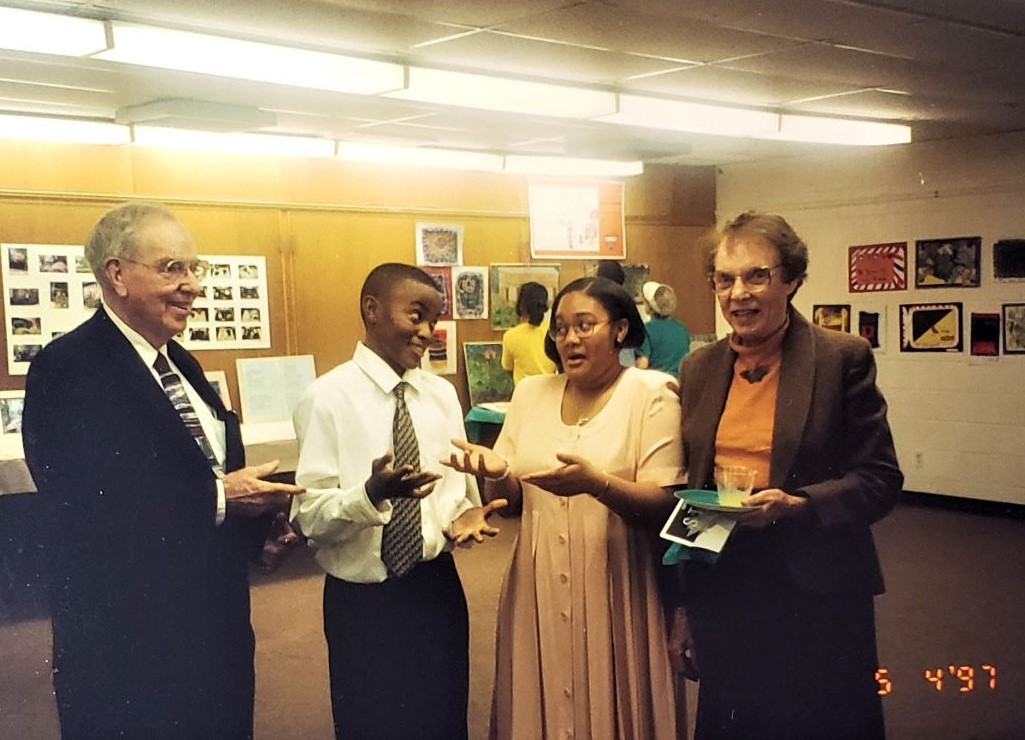April 13, 1923 – November 25, 2019
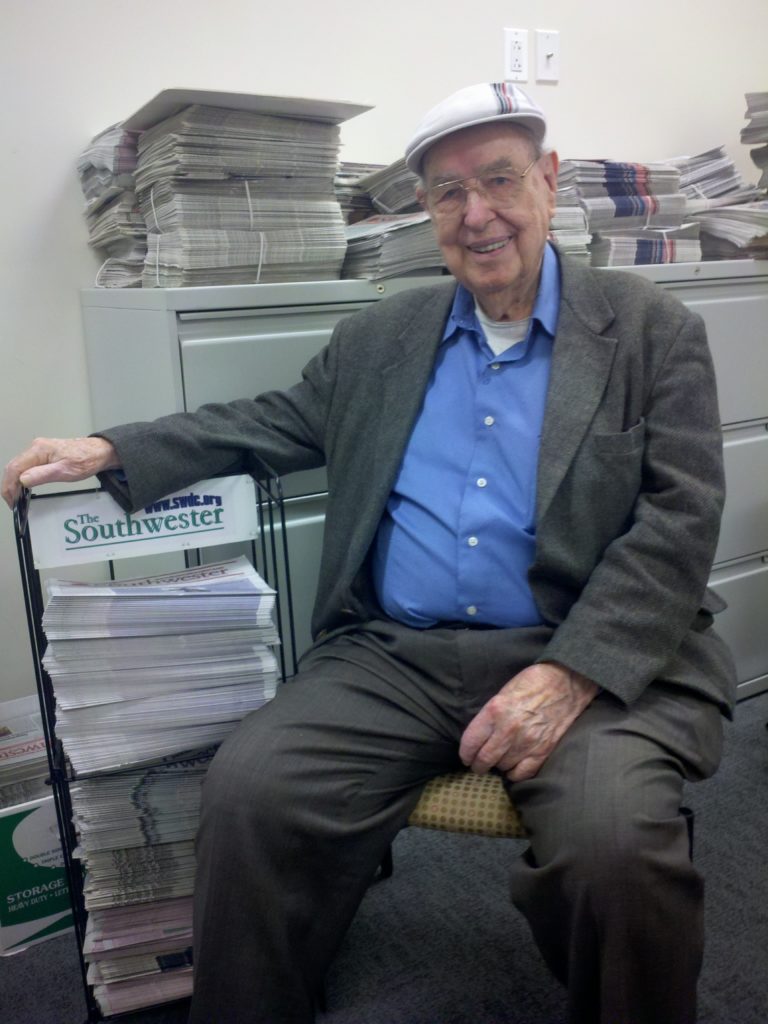
Dale MacIver led “The Southwester” for 33 years, beginning in 1978. He got his first taste of journalism in junior high school, and in college became editor of the Duluth Collegian in 1941. While a business and law degree took his day job to Capitol Hill, he kept dabbling in various forms of publications throughout his life, continuing to serve as Editor Emeritus of “The Southwester” long after leaving the Editor-in-Chief position.
A point of pride for his time with “The Southwester” was the involvement of youth in the newspaper. He left a lasting impression on many young minds as he encouraged and supported countless community initiatives in Southwest, including providing many young adults with funds to continue their education. In 2012, he told Southwest’s Paul Heaton, “I don’t do anything that I didn’t learn in Sunday school. Obviously, the kids give a lot back to you, and the parents are very appreciative.”
As a result of declining health, Mr. MacIver peacefully passed away on Nov. 25 after eating breakfast. He will be well remembered for his vibrancy and a heart to serve the community.
A Memorial Service for Mr. MacIver will be held on Feb. 8 at 2 p.m. at Westminster Presbyterian Church, located at 400 I St., SW.
Reflections on Dale MacIver
By Thelma D. Jones
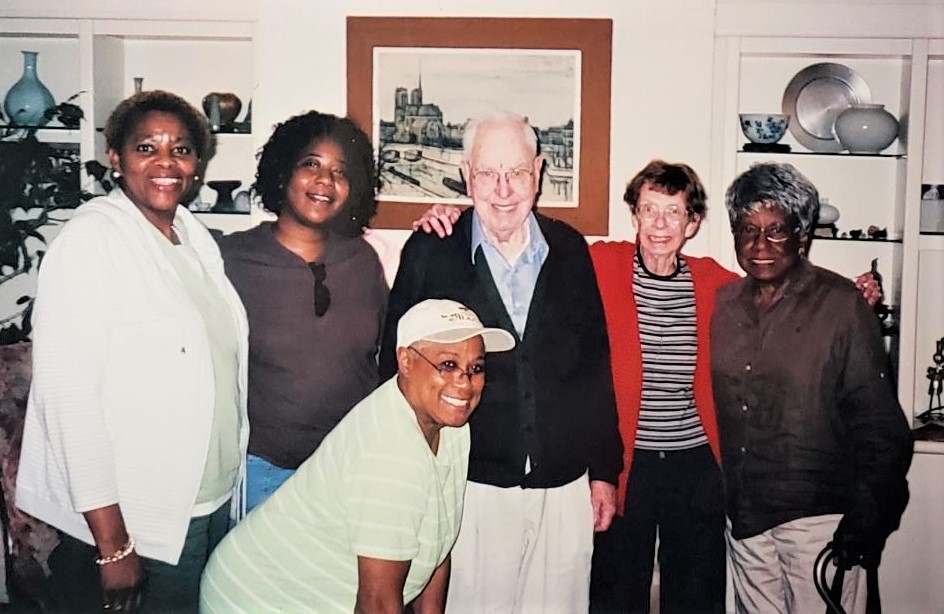
When I think of Dale, I think of an advisor, a mentor, a griot and a person who truly cared about SW and the District of Columbia – its past, present and future – especially the SW youth and young adults. Talking to Dale at times about SW or the city was like a walk down memory lane, akin to listening to an oral history of the city and community for which he loved dearly. Dale witnessed the ebbs and tides of the community and the city and in my opinion, he always hoped that eventually the changes would benefit everyone equally. Dale was the epitome of philanthropy and through his generous giving of his time, talent and treasure, many youth and young adults have grown and prospered through receiving their degrees, finding a job, and becoming productive citizens and family members who embraced his value of paying forward. I have had the opportunity over the years of working with and being in touch with many of the lives that Dale touched, including mine, and are now serving in volunteer positions.
I know over a dozen SW or former SW residents who Dale impacted tremendously, including myself. Because of Dale, I became inspired and motivated to write for “The Southwester” in the early 1980s and never looked back. His inviting and welcoming me as a young writer did a lot for my self-esteem and overall confidence level to express myself in an open forum about issues and topics that mattered to me and others as well. This led me to write for other publications that published my articles. Originally, I was always reluctant to include my name and phone number in an article for fear of receiving unwanted calls. I will never forget how Dale admonished me in that “classic Dale style with a grumpy sounding voice which clearly showed his dissatisfaction,” and said, “How can you be a community activist and be afraid to include your name and number? That doesn’t make sense! People need to know who to contact if they have a question.”
Dale unselfishly demonstrated that residents of different ethnicities could live together as he understood and deeply cared for the plight of the marginalized residents and felt that we all basically shared the desire to have a decent and safe home and neighborhood in which to live, an opportunity to be trained or educated in a way that would prepare us for a well-paying job with growth opportunities, proper clothing to wear, healthy food to eat and ways to remain healthy. Dale served as the editor for “The Southwester” for over 30 years and served on SWNA’s Youth Activities Task Force (SWNA YATF) as one of its founding members. From this effort, more than 300 Southwest youth received summer jobs which did a lot to help with their growth and development as successful adults and good citizens. Several students from this program were assigned to places such as the World Bank Group over a five-year period. As a World Bank Group employee, I subsequently used the successful YATF model to pilot a similar summer internship program in 1999 at the World Bank Group with three students from Cardozo High School. At the time of my retirement in 2005, more than 125 students had participated in the summer internship program which still exists today. Consequently, Dale’s efforts and the founders of the YATF Summer Jobs Program had far reaching impacts on other youth.
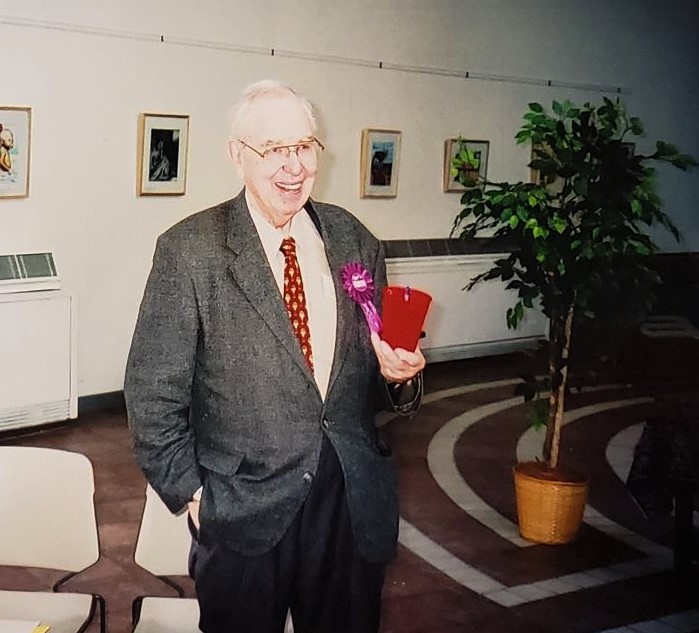
Some examples of the SW youth he touched are Lisa Matthews and her brothers Vincent and Vann Matthews (Lisa is a YATF poster child); Rhonda Hamilton who is now a veteran ANC Commissioner (Rhonda was 14 when she started with YATF’s summer jobs program); and Andrew Wilkerson and Marcellus “Marty” Watson (both are YATF members) who often supported Dale in various youth activities in SW.
I will miss my advisor, mentor and friend. Interestingly, Dale never liked or enjoyed being in the limelight or the focus of attention. As a matter of fact, he hated it and if he got wind that he was going to be the center of attention, he wouldn’t attend the event. YATF made several attempts over the years to have a fundraiser in his name or attempt to give him greater recognition; however, he would decline. He would at times accept the recognition if it focused on an effort that showed benefit for a greater good such as when he was honored by the DC Federation of Civic Associations for his civic activism and editor of “The Southwester.” Growing weary of his interest in being recognized, YATF organized a celebration for him at Jenny’s, one of his favorite places to dine, with the understanding that any donations would go to YATF. As the coordinator of the event, I witnessed a look on Dale’s face that I rarely saw as he was truly grateful about the celebration and surprised at the attendance which was like a family reunion, as many of his civic friends and youth whose lives he had touched were there and saying, “Thank you Mr. MacIver!”
It’s ironic that one of the things that Dale disliked the most – attention and being in the limelight – is what we are doing now and later to show our gratitude and appreciation for his generous philanthropic and caring ways for the city at large, but more specifically for Southwest and our many youth. Rest in Peace my friend, as you have greatly impacted my life as a civic activist and youth development leader. Our community and city will have a huge void without you!
What can I tell you about Mc. MacIver?
By Alvin Bethea
What I can tell you about Mr. MacIver is – he was a good man. What comes to my mind now as I compose this is “philanthropist.” Mr. MacIver was always giving of his time, energy, money and talents to the black folks who lived in public housing.
I describe what Mr. MacIver did for SW like this: Mr. MacIver was the only white man to walk around and through the public housing properties of SW, back during the early 1980’s. He was a positive force willing to help. I truly don’t believe there is anyone who can say one bad thing about him. People can only say good things.
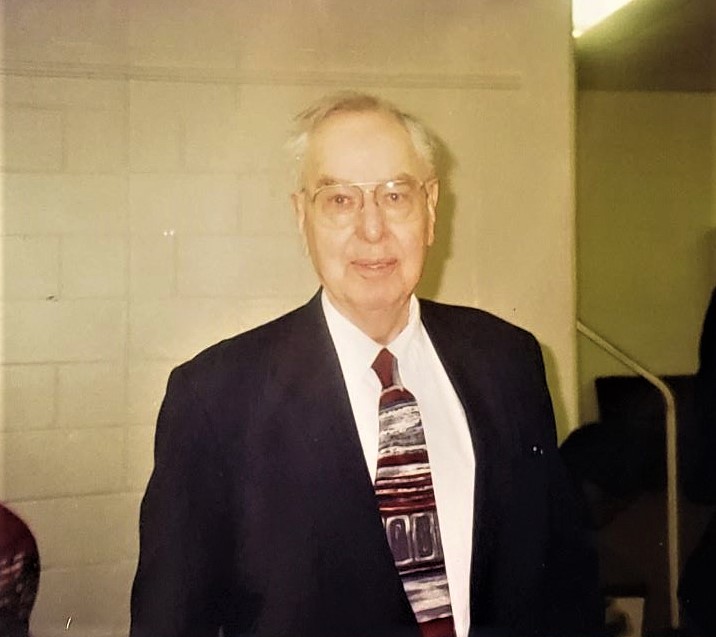
Mr. MacIver had a positive impact on a lot of people – both young and old. He chartered a bus and took public housing kids on college tours throughout the southern states; he gave many black kids jobs working the summer on Capitol Hill; he paid some kids’ college tuition; he allowed some kids to work for and write articles for “The Southwester.” As memorialized in the archives of “The Southwester,” Mr. MacIver wrote many articles about the positive things that were going on in public housing.
As you can imagine, during the early 1980’s, SW was experiencing a drug and crime epidemic. There was nowhere you couldn’t turn and be confronted with violence and drugs. It was a particularly scary time for white people to walk through and around these public housing units. Mr. MacIver walked alone and talked to people and found that “diamond in the rough.” He exposed young people to more than just their crime-ridden neighborhood and he gave plenty of kids hope that they could have a better future. When he wrote articles and published those articles in “The Southwester” newsletter about kids, I can’t tell you how that brought joy to the community members’ faces and hearts. Parents and family members would read with joy and happiness and it gave them hope long, long before Obama.
One last thought, I am proud to say that my mother’s house was probably the only house he went into in the SW public housing units. Mr. MacIver would walk around and through SW but he wouldn’t go into anybody’s house. And I don’t blame him. But he would go into my mother’s house and talk with my mother. Now, let me caution you my mother had a husband at this time and was a federal employee. My mothers’ husband had no choice but to give Mr. MacIver the utmost respect. My mother wouldn’t have it any other way. One summer evening, as I was standing on my mother’s front porch, I observed this white man come up my mother’s walkway to her porch. I didn’t say anything. But he walked past me and was invited in by my mother. A few minutes later, I went into the house and saw my mother sitting in her favorite spot and Mr. MacIver seated. They were both comfortably seated. I then realized they just enjoyed each other’s company and were just engaged in conversation about current events. RIP Ma and Mr. MacIver.
Pulled from the archives of “The Southwester,” below is a list of quotes by those who were impacted by Mr. MacIver, over the years:
“Mr. MacIver might be 94, but he’s ageless. He’s given back for so long that you can’t put a time on it.”
“I’ve been on this Earth 44 years and Dale is the best human I’ve ever met in my life.”
“Dale is one of the truly great pioneers in this community. Southwest for life.”
“A lot of families in Southwest had financial stability thanks to this single man.”
“Dale is the first person to ever teach me how to tie a tie.”
“Dale taught me how to get work the right way. How to earn money the right way. He taught me to save my money. I can’t thank him enough.”
“Dale didn’t have any ulterior motive. He was here for us.”
“I’m here today because of Mr. MacIver. This is a man I would give my life for. If I ever needed him there was no question he’d be there.”
“People said in the ’80s Marion Barry had the youth work programs, but Mr. MacIver is the person who got me my first job.”
“To this day I still have ‘The Southwester’ newspaper when Mr. MacIver put me in the newspaper.”
“When I went to college, I used to stand by the mailroom because I knew Mr. MacIver was going to take care of me and send me care packages.”
“I didn’t have a father in my life. Dale was my father. Dale got me a job working for a congressman. Then he got me a job at a law firm.”
“If I had to pay Dale back, it would be impossible. He gave me my lifeline. He changed my life.”
“Dale made me a positive person; taught me to work hard; made me a strong person. He taught me to be a positive role model to the youth.”
“Dale is the reason I went on the career path I did. I’ve been at USA Today for the last 12 years thanks to Mr. MacIver.”
“You’re talking about maybe 70 years in the community. If that’s not an icon I don’t know what is.”
